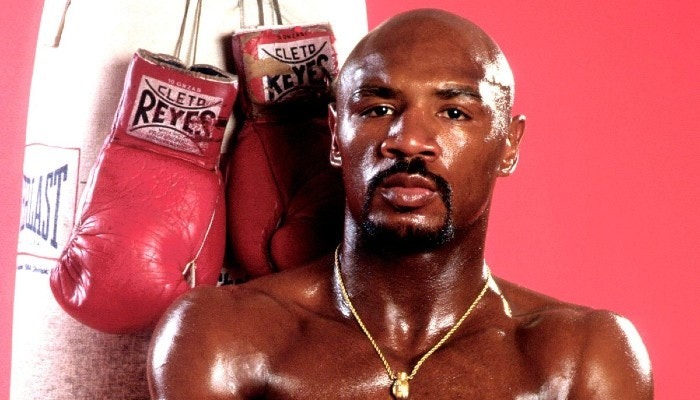I sat back and read all of the tributes that were put forth about Marvelous Marvin Hagler, who recently passed away at the age of 66. They were marked by universal respect, as they should have been.
But there was a certain perspective that I thought to be conspicuously absent.
When we talk of outstanding athletes who have passed through our time, we often speak about their ability to move the sport ahead, or pave the way for what came afterward.
But what I appreciated about Hagler was the fact that he DIDN’T revolutionize or transform the sport of boxing. He DIDN’T usher in a new era.
That wasn’t a shortcoming. It doesn’t hurt his place in history. It’s actually a strength.
Hagler’s represented something markedly different from what we see in the boxing business today, even though he was on the cusp of the period that started to bring about the change.
And it’s a good thing he did not “evolve” as others did.
Expert UFC Betting Guide
He was one of the last with the “old school” mentality. That is an oft-beaten term, but nonetheless one that is appropriate here.
We’re living through an era of professional boxing where the barometer fighters (and most of the media, we might add) use to measure “greatness” involves moving in weight class and accumulating championships, ersatz as they might be. Part of that practice is to find the least accomplished titleholder in the next weight class up, beat him, and then stake one’s claim to being the “G.O.A.T.” (Greatest of All-Time, for the uninitiated) or, at the very least, a pound-for-pound champion.
I’m not making a hollow observation. I have known members of the boxing media, who only know the sport during the era where there are four major sanctioning bodies, but at the same time are empowered with a Hall of Fame vote,use, as a point of comparative reference, how many titles a fighter has won; i.e., how many weight divisions he has “conquered.”
When I was first getting involved in this business, I was on hand Alexis Arguello was attempting to become the first fighter to win championships in four different weight classes by fighting Aaron Pryor. That was 1982. And let’s just say, for the sake of argument, that boxing. under rules that bear a resemblance to what we see today, was about 90-100 years old at the time.
Thomas Hearns finally did it first, capturing a title in a fourth weight division in 1987 (the WBC middleweight crown).
Since then, there have been twenty fighters who have won titles in four divisions. And there are a total of 52 in boxing history who have three titles to their credit, including a few that, honestly, I have never heard of.
Expert Sports Handicapper Reviews
It’s gotten to the point of silliness.
Anyway, my point is that Hagler was a middleweight. Period. He hovered around 160 for his entire career. Even in the latter part of his career he resisted any urge to go to the light heavyweight division or the then-newly created super middleweight class, although he would have unquestionably have gotten an opportunity to build on what most of today’s boxing writers might refer to – ad nauseum – as his “legacy.”
All Hagler was interested in was being the middleweight champion, having fought his way through one tough guy after another in the process of earning a title shot (something foreign to this generation of “contenders”), and then going on to dominate the division.
The notion of something like that happening today is….. well, it doesn’t really exist.
How many fighters (below the heavyweight class) are we going to see in the future who spend their entire career concentrating on being the best in their own weight division? If I had to venture a guess, I’d say not too many.
And if Hagler, who retired after fighting Sugar Ray Leonard in 1987, were, say, ten or fifteen years younger, do you think he’d be one of those guys offering himself up for an “exhibition” bout on Triller?
I think you know the answer to THAT one.
Start a bookie by joining a pay per head service.
Claim a sports betting bonus at the best online sportsbooks.















